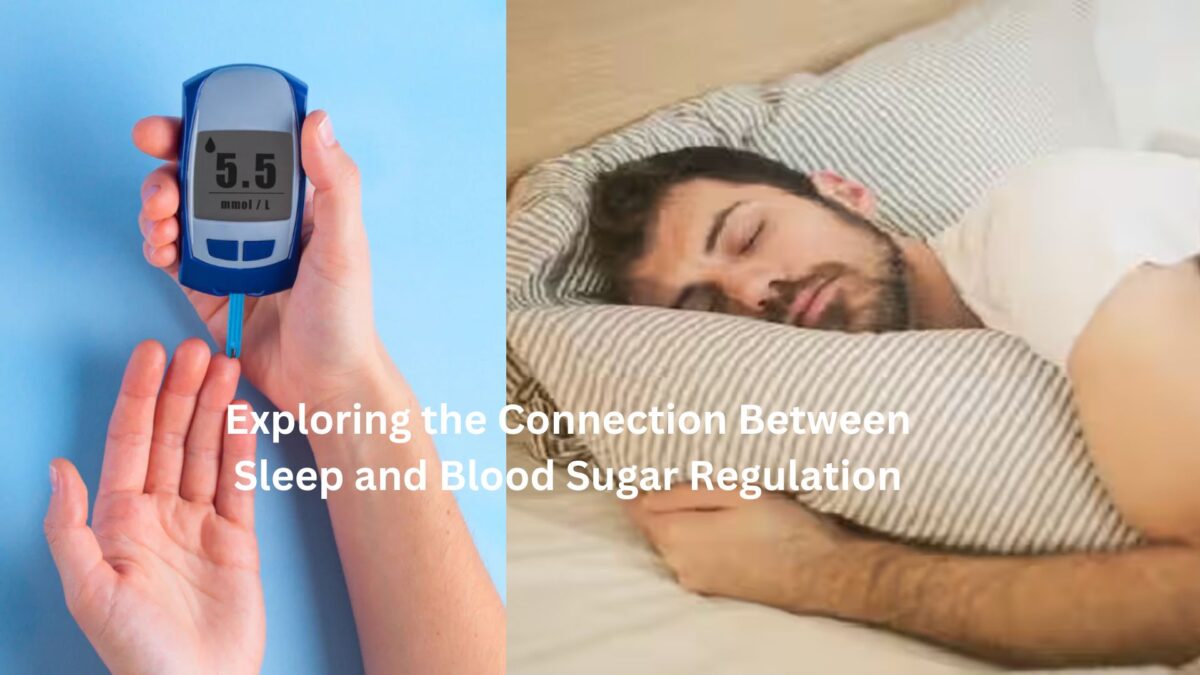Exploring the Connection Between Sleep and Blood Sugar Regulation

How sedentary lifestyle is contributing to sarcopenic obesity?
March 30, 2024
Supporting Heart Health: The Power of Nutrition, Exercise, and Nitric Oxide
April 13, 2024Exploring the Connection Between Sleep and Blood Sugar Regulation
In the realm of health and well-being, the intricate dance between sleep patterns and blood sugar regulation has emerged as a captivating field of exploration. A pioneering initiative by Michigan State University, led by Dr. Robin Tucker, an esteemed assistant professor in Food Science & Human Nutrition, is unraveling the potential connections between sleep quality and the management of type 2 diabetes. With a generous grant of $52,000 from the Blue Cross Blue Shield of Michigan Foundation, this research endeavor, initiated in November 2020, seeks to ascertain the impact of evidence-based sleep education on the ability of individuals to navigate the complex landscape of diabetes.
The Circadian Rhythm of Blood Sugar
Embarking on this journey necessitates an understanding of our inherent circadian rhythm—a natural biological cycle that orchestrates the ebb and flow of various physiological processes. Among these intricacies lies the nighttime increase in blood sugar levels, an element of the circadian rhythm that is not only normal but essential for healthy functioning. For those in good health, these fluctuations during sleep are a routine part of the body's orchestration, not a cause for undue concern.
The Complex Relationship between Sleep and Blood Sugar
Peering into the tapestry of sleep and blood sugar, it becomes apparent that the relationship is far from straightforward. Factors such as the duration of sleep, specific sleep stages, the timing of sleep, age, and even dietary habits play pivotal roles in this intricate web. A notable trend over recent decades reveals a decrease in the average duration of nightly sleep, coinciding with a parallel increase in obesity and diabetes. This correlation prompts a compelling question: could there be a deeper connection between these phenomena?
Sleep's Impact on Blood Sugar Mechanisms
Unlocking the secrets of how sleep influences blood sugar involves delving into the intricate mechanisms at play. Sleep deprivation, for instance, has been shown to elevate cortisol levels—a stress hormone—which in turn affects glucose regulation. Furthermore, reduced insulin sensitivity during periods of sleep deprivation can contribute to elevated blood sugar levels. The interplay between insulin and cortisol during various sleep stages further shapes the nuanced relationship between sleep and blood sugar. Growth hormone, a player in metabolic processes, surges during sleep, potentially influencing glucose levels. Additionally, oxidative stress and inflammation, exacerbated by sleep deprivation, exert their impact on glucose regulation.
Reciprocal Relationship: Blood Glucose and Sleep Quality
As we navigate this labyrinth of interconnected physiological processes, it becomes evident that the relationship between blood sugar levels and sleep quality is bidirectional. Research indicates that individuals with higher blood sugar levels, especially those grappling with type 2 diabetes, may experience poorer sleep. The intricate mechanisms underpinning this association remain an intriguing avenue for further investigation.
Hypoglycemia and Sleep Disturbances
Low blood sugar, or hypoglycemia, is not confined to disrupting wakeful hours; it can also cast its influence over the realm of sleep. Nocturnal hypoglycemia, occurring during the night, may manifest in symptoms such as nightmares, profuse sweating, and a sense of irritability upon waking. It's noteworthy that these symptoms can affect individuals both with and without diabetes, underscoring the broader impact of blood sugar on sleep.
Sleep Disorders and Blood Sugar Levels
The narrative expands further as we explore the intricate interplay between sleep disorders and blood sugar levels. Conditions such as sleep-disordered breathing and obstructive sleep apnea are associated with elevated glucose levels and impaired glucose tolerance. There is a clear correlation between the severity of sleep breathing issues and higher blood sugar levels, emphasizing the importance of understanding the depth of this connection. Moreover, research suggests that poor sleep quality is linked to a reduced ability to control glucose levels, even in diabetic patients.
Conclusion
In navigating the complex terrain where sleep intricately intertwines with blood sugar regulation, ongoing research endeavors aim to unveil the multifaceted connections that influence our overall well-being. The potential impact of improved sleep on diabetes management opens a promising avenue for enhancing the quality of life. As we continue to unravel the secrets of this intricate relationship, the insights gained hold the potential to transform how we approach both sleep and blood sugar regulation in the quest for holistic health.







